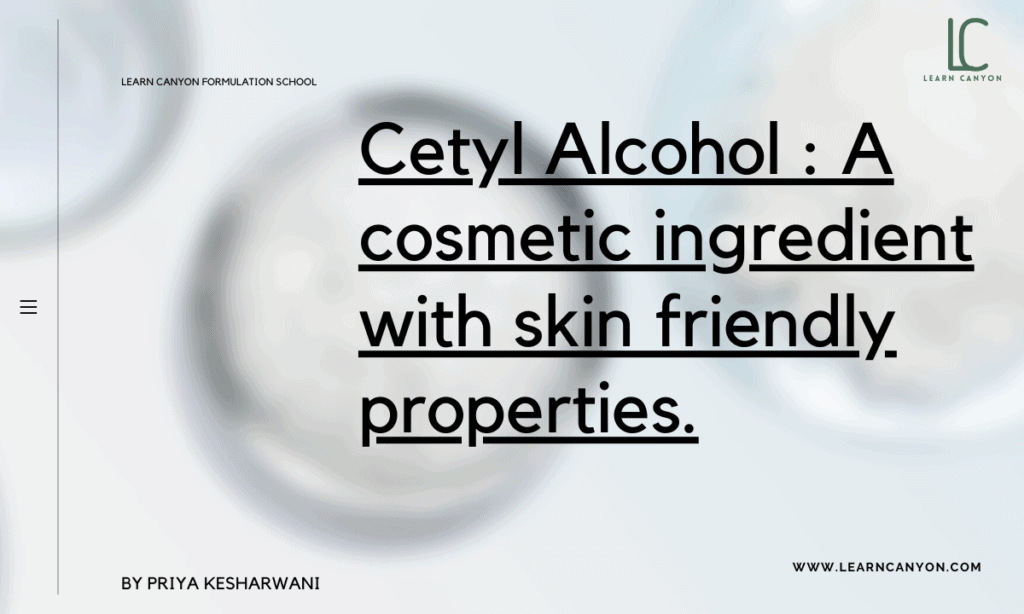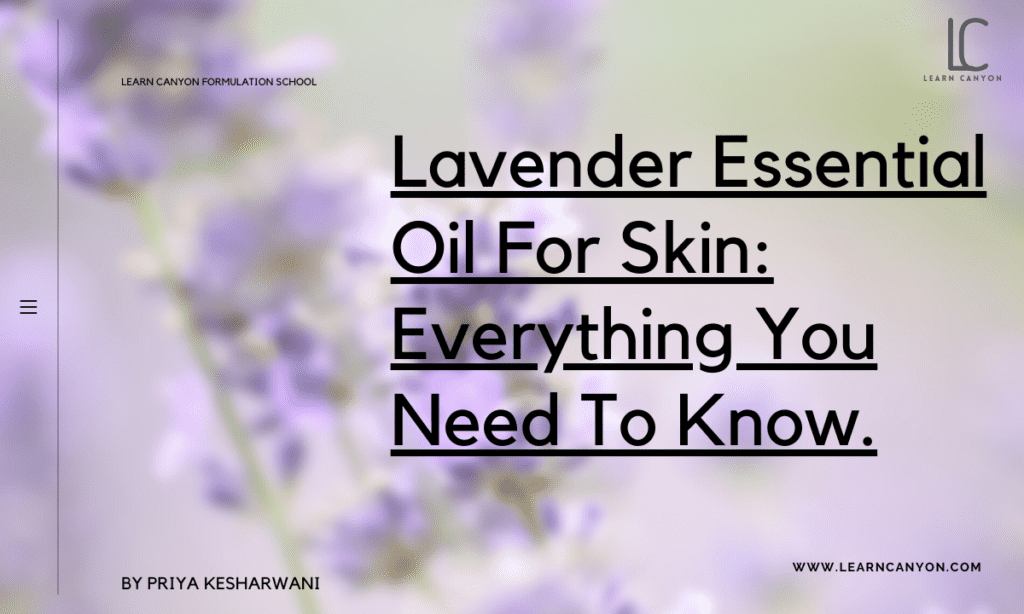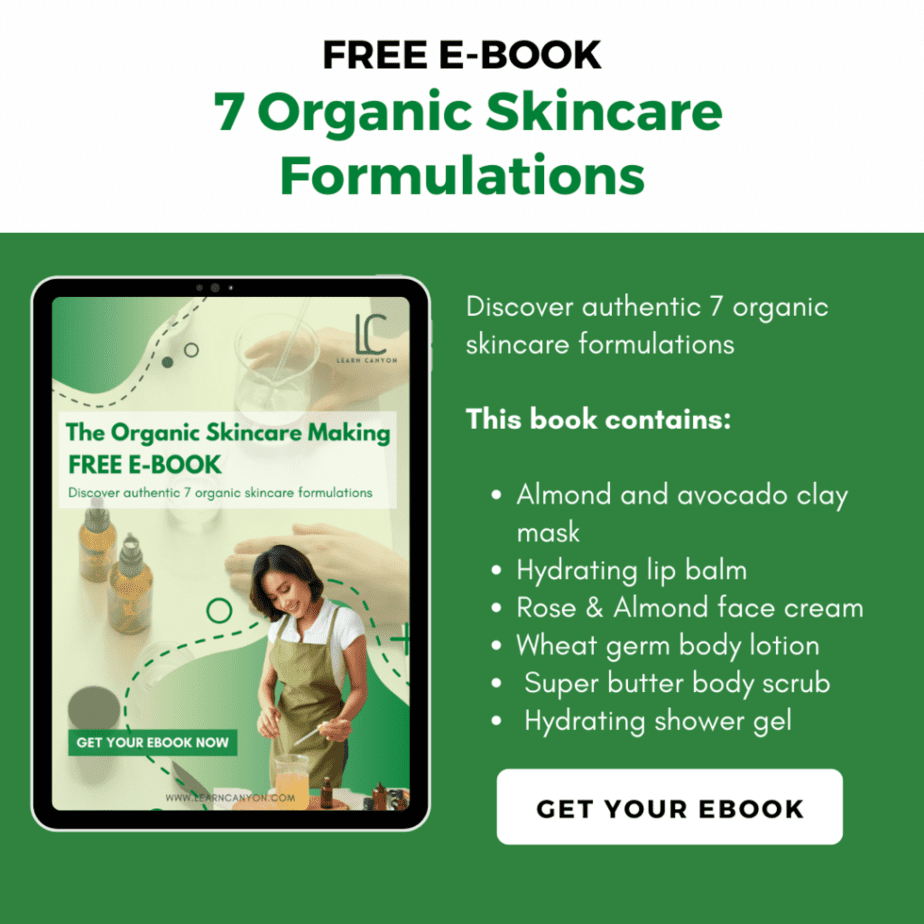
Cetyl Alcohol: Skin Friendly Ingredient

Cetyl Alcohol
Cetyl Alcohol is commonly confused with rubbing alcohol, a drying form of alcohol; nevertheless, Cetyl Alcohol is skin-friendly, with moisturising, nourishing, and softening properties that benefit both skin and hair.
What is cetyl alcohol?
Because it is an alcohol derived from a fat, such as a vegetable oil like Coconut or Palm Oil, it is also known as Palmityl Alcohol. Cetyl Alcohol should not be confused with Ethyl Alcohol, which is the primary component in alcoholic beverages.
Because it was first made from whale oil, Cetyl Alcohol receives its name from the Latin word Cetus, which means “whale oil.”
At normal temperature, Cetyl Alcohol Raw Material from NDA comes in odourless flakes or pellets with a waxy texture and a white colour.
| What is it? | A fatty alcohol used as a thickener. |
|---|---|
| INCI | Cetyl Alcohol |
| Appearance | White, Waxy Pellets |
| Texture | Waxy |
| Recommended Usage | 3–10% |
| Solubility | Oil soluble |
| Melting point | 49°C (120°F) |
| Boiling point | 344 °C |
| pH | NA |
| Aroma | Nothing much; perhaps a bit fat-like |
| Why do we include it in formulations? | Cetyl Alcohol is a fatty alcohol that adds body and viscosity to creams and lotions by acting as an emulsion stabiliser and opacifier. |
| How to work with it? | It must be melted into items, thus include it in your heated oil phase. |
| Applications | Cetyl alcohol is a fatty alcohol used in a number of cosmetics and skincare products as an emollient, emulsifier, thickener, and surfactant. |
| Absorption rate | Fast |
| Strength | It's a powerful thickening that doesn't have the weight or tack of waxes. |
| Weaknesses | In runnier anhydrous products, it may crystallise and/or settle away. |
| Substitution | Cetearyl alcohol |
| How to store it? | Stored in a cool, dark and dry place. |
| Shelf life | The shelf life of cetyl alcohol should be at least two years. |
Fun Fact
| Type of ingredient | Soothing, lubricant (emollient) |
|---|---|
| Main benefits | It serves as an emulsifier, a soothing lubricant (emollient), a thickening, an opacifier, and a carrier for additional ingredients in a mixture. |
| Who should use it | Anyone who does not have an allergy to cetyl alcohol can safely use it. |
| How often can you use it? | Daily |
| Works well with | Most other emulsifiers. |
| Doesn't work with | When combined with ceteareth-20, cetyl alcohol is safe to use with most other substances, although it can be comedogenic. |
| How to use | Cetyl Alcohol must be added to heated oil phases of formulations. |
Mechanisms of action
Because of its moisturising qualities, cetyl alcohol can be used as an emulsifier and stabiliser in cosmetic formulations.
Because of its dispersing and stabilising characteristics, it’s also found in washable ointment bases.
Cetyl alcohol’s antibacterial activity could be related to a shift in cell membrane permeability that either prevents important nutrients from being absorbed or causes vital cellular components to diffuse outward.
Other long-chain aliphatic alcohols with antibacterial activity, such as myristyl alcohol and behenyl alcohol, are thought to have a mechanism of action similar to this one.
The benefits of Cetyl Alcohol
Cetyl alcohol is a moisturiser that helps moisture bond to the skin. It’s a fatty alcohol that also functions as an emulsifier to give our products the correct texture. It can be used as an emollient, to keep items from separating, to control product thickness and runniness, as a coupling agent, and even to stabilise foams.
It is soluble in alcohol and oils but not in water. Cetyl alcohol and stearyl alcohol are combined to make cetearyl alcohol, which is also a moisturiser in our products.
Side Effects of Cetyl Alcohol
The majority of emollients are completely safe to use and have no negative side effects.
How to use it in formulation?
In heated oil phases of formulations, Cetyl Alcohol must be included. If the Cetyl Alcohol concentration is higher, the final result will be thicker.
Work well with other ingredients
Works well with most other emulsifiers.





